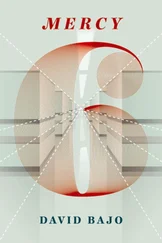Andrea Dworkin - Mercy
Здесь есть возможность читать онлайн «Andrea Dworkin - Mercy» весь текст электронной книги совершенно бесплатно (целиком полную версию без сокращений). В некоторых случаях можно слушать аудио, скачать через торрент в формате fb2 и присутствует краткое содержание. Жанр: Старинная литература, на английском языке. Описание произведения, (предисловие) а так же отзывы посетителей доступны на портале библиотеки ЛибКат.
- Название:Mercy
- Автор:
- Жанр:
- Год:неизвестен
- ISBN:нет данных
- Рейтинг книги:3 / 5. Голосов: 1
-
Избранное:Добавить в избранное
- Отзывы:
-
Ваша оценка:
- 60
- 1
- 2
- 3
- 4
- 5
Mercy: краткое содержание, описание и аннотация
Предлагаем к чтению аннотацию, описание, краткое содержание или предисловие (зависит от того, что написал сам автор книги «Mercy»). Если вы не нашли необходимую информацию о книге — напишите в комментариях, мы постараемся отыскать её.
Mercy — читать онлайн бесплатно полную книгу (весь текст) целиком
Ниже представлен текст книги, разбитый по страницам. Система сохранения места последней прочитанной страницы, позволяет с удобством читать онлайн бесплатно книгу «Mercy», без необходимости каждый раз заново искать на чём Вы остановились. Поставьте закладку, и сможете в любой момент перейти на страницу, на которой закончили чтение.
Интервал:
Закладка:
them. I will never have easy words; at my fingertips as they


say; but I will stake m y life on these words: Stop them. They
don’t stop themselves, do they? I’m Andrea, which means
manhood, but I do not rape; it is possible to be manly in your
heart, which I have always been, and not rape, I’ve always
liked girls, I’ve made love with many, I’ve never forced
anyone, don’t tell me you can’t, save it for them that don’t
know what it’s like, being with a girl. I was born in 1946, after
Auschwitz, after the bomb, I never wanted to kill, I had an
abhorrence for killing but it was raped from me, raped from
m y brain; obliterated, like freedom. I’m a veteran o f Birkenau
and Massada and deep throat, uncounted rapes, thousands o f
men, I’m twenty-seven, I don’t sleep. They leave the shell for
reasons o f their own. I have no fear o f any kind, they fucked it
out o f me some time ago, it’s neither here nor there, not good
or bad, except girls without fear scare them. I was born in
Camden, on M ickle Street, down from where Walt Whitman
lived, the great gray poet, a visionary, a prophet o f love; and I
loved, according to his poems. I was poor, I never shied away
from life, and I loved. I had a vision too, like his, but I will
never write a poem like his, a song o f myself, I count the
multitudes and so on, the multitudes passed on top o f me,
sticking it in, I lost count. For the record, Walt was wrong;
only a girl had a chance in hell o f being right. A lot o f men on
the B o w ery resemble Walt; huge, hairy types; I visit him
often. It was the end o f April, still cold, a brilliant, lucid cold.
Y ou could feel summer edging its w ay north. Y ou could smell
spring coming. Y ou would sing; if your throat wasn’t ripped.
Y ou r heart would rise, happy; if you wasn’t raped; in
perpetuity. I went out; at night; to smash a man’s face in; I
declared war. M y nom de guerre is Andrea One; I am reliably
told there are many more; girls named courage who are ready
to kill.


Not Andrea: Epilogue
It is, o f course, tiresome to dwell on sexual abuse. It is also
simple-minded. The keys to a woman’s life are buried in a
context that does not yield its meanings easily to an observer not
sensitive to the hidden shadings, the subtle dynamics, o f a self
that is partly obscured, partly lost, yet still self-determining, still
agentic— willful, responsible, indeed, even wanton. We are
seeking for the analytical tools— rules o f discourse that are
enhanced rather than diminished by ambiguity. We value
nuance. Dogma is anathema to the spirit o f inquiry that animates
women’s biography. The notion that bad things happen is both
propagandistic and inadequate. We want to affirm the spiritual
dignity and the sexual bonding we seek to find in women’s lives.
We want a discourse o f triumph, if you will pardon me for being
rhetorically elegant. I have heard the Grand Inquisitor Dworkin
say that, as we are women, such discourse will have to be
ambiguous. She is a prime example, o f course, o f the simple-
minded demogogue who promotes the proposition that bad
things are bad. This axiom is too reductive to be seriously
entertained, except, o f course, by the poor, the uneducated, the
lunatic fringe that she both exploits and appeals to. It is, for
instance, anti-mythological to perceive rape in moralistic terms
as a bad experience without transformative dimensions to it. We
would then have to ignore or impugn the myth o f Persephone,
in which her abduction and rape led, in the view o f the wise
ancient Greeks, to the establishment o f the seasons, a mythologi-


cal tribute, in fact, to the seasonal character o f the menarche. It
is disparaging and profoundly anti-intellectual to concentrate
on the virtual slave status o f women per se in ancient Greece as
if that in and o f itself rendered their mythological insights into
rape suspect. In fact, intercourse, forced or not, is the
precondition for a fertile, fruitful, multiplied as it were,
abundance o f living things, symbolized by the planting and
harvesting seasons. I am, o f course, not allying m yself either
with the right-wing endorsement o f motherhood or fam ily in
making these essentially keen, neutral, and inescapable observations. We cannot say the Greek philosophers and artists, the
storytellers and poets, were wrong, or dismiss them, simply
because some among us want to say that rape is bad or feels
bad or has some destructive effects. In fact, it has not been
scientifically proven that the effects o f rape are worse than the
effects o f gender-neutral assault and we are not willing to stew
in our stigma. As one distinguished feminist o f our own
school wrote some years ago in a left-wing journal o f
socialism, and I am paraphrasing: we should not dwell on rape
at all because to do so negatively valorizes sex; instead we
should actively concentrate on enjoying sex so that, in a sense,
the good can push out the bad; it is sex-negative to continue to
stigmatize an act, a process, an experience, that sometimes has
negative consequences; if we expand sexual pleasure we will,
in fact, be repudiating rape— in consciousness and in practice.
Further, in w om en’s academic circles we reify this perspective
by refusing, for instance, to have cross-cultural or cross-disci-
plinary discussions with those who continue to see themselves
as victims. While we deplore racism and endorse the goals o f
wom en o f color, we do not enter into discussions on the
Holocaust with Je w s or on slavery with Afro-Am ericans
because our theory, applied to their experience, might well be
misunderstood and cause offense. In fact, they will not affirm
the agentic dimensions o f their ow n historical experience,


which, we agree, is essentially an oppressive one. They
denounce and declaim, and we support them in those efforts.
But, as we find transcending affirmative values in wom en’s
experience under patriarchy, so too we can find concrete
examples o f the same dynamic in both Afro-American and
Jew ish experience. Ghetto Jew s from Eastern Europe did,
Читать дальшеИнтервал:
Закладка:
Похожие книги на «Mercy»
Представляем Вашему вниманию похожие книги на «Mercy» списком для выбора. Мы отобрали схожую по названию и смыслу литературу в надежде предоставить читателям больше вариантов отыскать новые, интересные, ещё непрочитанные произведения.
Обсуждение, отзывы о книге «Mercy» и просто собственные мнения читателей. Оставьте ваши комментарии, напишите, что Вы думаете о произведении, его смысле или главных героях. Укажите что конкретно понравилось, а что нет, и почему Вы так считаете.












